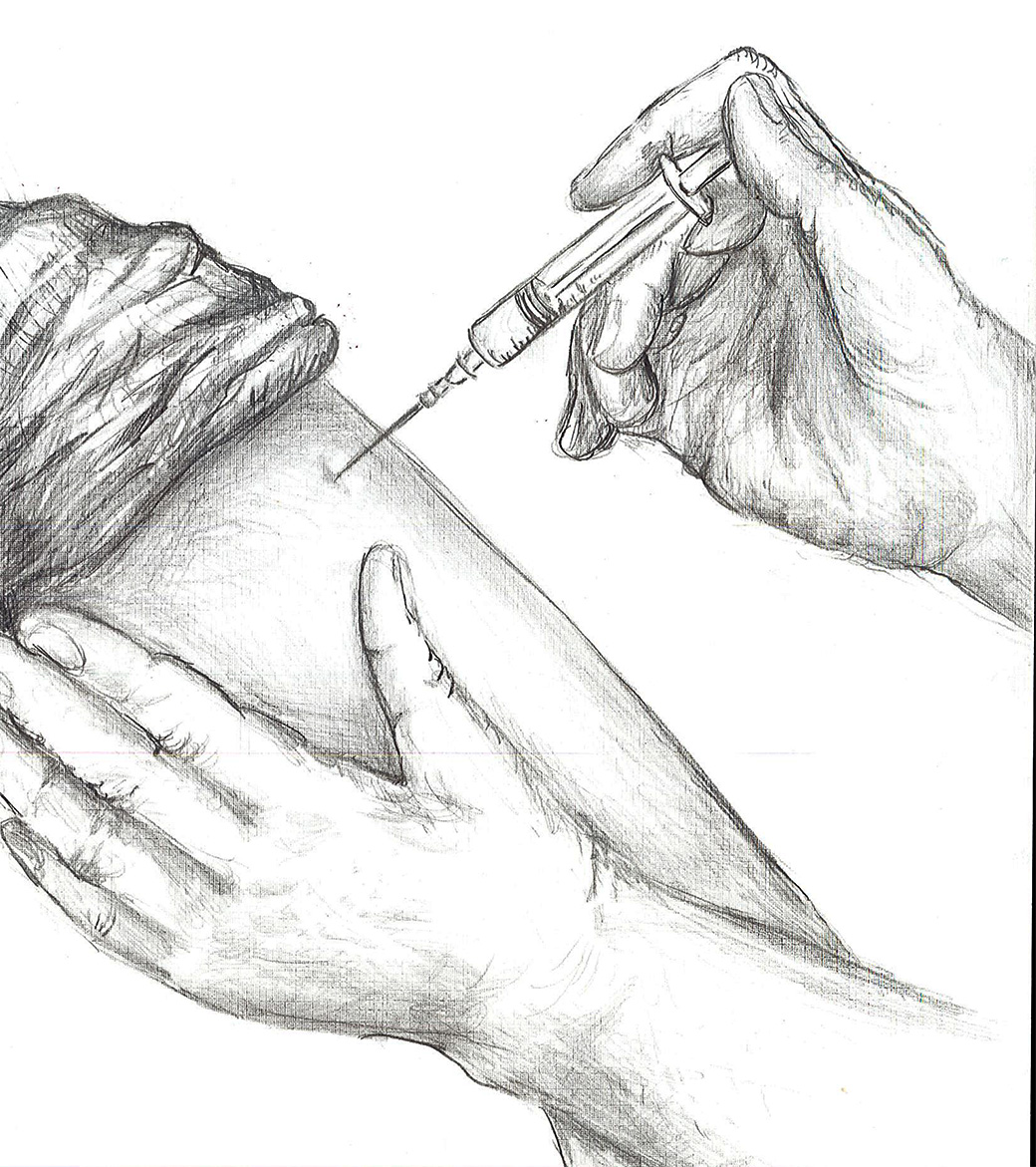
Precautions should be taken for cold and flu season
Outside your warm window, the leaves are falling and the temperature is dropping. Brace yourself, campus: cold and flu season is upon us.
I have had a mild cold around the same time of year for each of the last three years — right at the beginning of fall. My cold-fighting regimen has become fairly standardized as I’ve learned what works and what doesn’t. My number one go-to is black, hot coffee to fight the incredible physical exhaustion of having to do things while stricken with a cold.
On any given day I take in a good quantity of caffeine regardless of how I feel — but the warm, energizing black liquid becomes altogether indispensable during the exhausting days of an illness.
My number two go-to is high-menthol content cough drops — I take these liberally, in ignorance of what the box says. Well-known brands include Fisherman’s Friend or Sucrets. Fight the temptation to buy those Hall’s products which taste like strawberry candy — they’ll do you no good, as there isn’t enough of a menthol kick.
Number three is herbal remedies of dubious effectiveness. I take plenty of these as well — my favorite is Sambucol, a mixture of several homeopathic substances that sound like they do a lot of good. Whether they actually do anything or not, the placebo effect must be helpful in some way.
Like a lot of people, when I come down with a cold, I instinctively blame myself for not dressing myself in appropriately warm garb to keep the cold out. This, however, is a fallacy, said Anthony Burbach, a certified physicians assistant at Sanford Vermillion — the cold air temperatures of cold and flu season have little direct impact on people becoming ill. Rather, he said the fact that people huddle indoors when the temperatures drop causes more sickness.
“I don’t think it has anything to do with the fact that it’s cold outside — the chilliness outside, I don’t know that it would really bother your immune system to the point where you’d be necessarily more susceptible to pick it up,” Burbach said. “I think you’re just coming into contact with more of that stuff because you’re kept in closer quarters.”
Influenza (flu) is a much more serious condition than a cold, Burbach said.
“They’re both viruses, and the cold is, you know, runny nose, headaches, sore throat, cough, pretty general body aches,” Burbach said. “Influenza… is pretty much a cold that’s much worse — high fevers, shortness of breath, coughing, body aches.”
Because the flu can be so much worse than a cold, Burbach recommends a visit to the doctor to anyone whose illness is causing shortness of breath or a fever. And a fever, he cautioned, can only be diagnosed by a thermometer — not by a hand to the forehead.
Other than going to the doctor, Burbach said the only real way to fight a cold or flu is to do so symptomatically, because there’s no medicine that can actually eliminate the viruses. Thus I do with my caffeine and high menthol cough drops.
Getting enough sleep and eating a diet rich in vitamins and nutrients is also essential to keeping your immune system in fighting condition.
And there is, of course, the small matter of prevention. We’ve all heard it before, but it bears repeating.
“With the cold prevention is good hand hygiene, washing your hands, if you do cough in your hands washing your hands, carrying waterless hand sanitizer with you,” Burbach said. “But then the next important part is not touching your face,” because the only way a virus can make its way from your hand to your insides is through contact with a facial orifice.
Burbach lamented the fact that some students (and people in general) are lethargic about getting a flu shot.
“You really need to be getting a flu shot,” Burbach said — sooner rather than later. “It takes between two and three weeks for that flu shot to kick in, so waiting until flu season is here is too late.”
Finally, bare in mind that you aren’t just defending yourself from the cold and flu, you’re defending other people. Some people have weakened immune systems, caused by HIV/AIDS, cancer, diabetes or a variety of other health conditions. For those individuals, a cold or flu could be “potentially life-threatening,” Burbach said.

